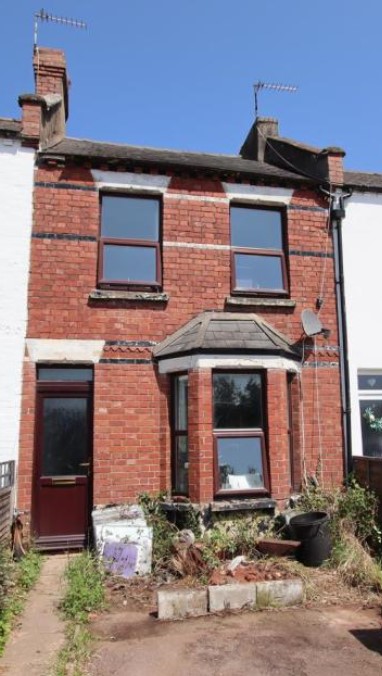Introduction
Aaron Dufty was the railway signalman at Hardington Marsh from about 1898 to 1901. He was the son of a farmer and spent his childhood at Great Torrington and Sheepwash. Early in his railway career, he spent time in Wilshire, where he met and married his wife. After their marriage, he lived in at least two locations in Devon before moving to Hardington. Eventually, he returned to Devon, where he purchased a house at Pinhoe.
Childhood in Devon
Aaron was born at Black Torrington in 1844, the second of six children born to John and Mary Dufty. His father was a farmer who, in March 1851, occupied 120 acres at West Forda.
In the 1850s, the family moved to Court Farm, Sheepwash, which was about 100 acres.
Semley
After leaving school, Aaron became a railway employee. By April 1871, he was working as a railway porter at Semley, lodging at Bounmarsh Common with another railway porter.
While there, he received two pieces of bad news from home. In November 1872, his younger brother, Moses, who had kept the White Hart Inn at Sheepwash, fled to the USA after assaulting his wife to avoid a prison sentence.[1] A year later, in November 1873, another brother, Daniel, died at the age of 27.
Tisbury
By 1874, Aaron was a railway signalman at Tibury. On 23 December 1874, he married Anna Furnell at Tisbury. Aaron was 30 years old, and Anna was 27. Both signed the marriage register.
Anna was the daughter of James and Elizabeth Furnell. Her father was a coal carrier, and her mother died when she was thirteen.
Aaron and Anna’s first child, Elizabeth Mary, was born at Tisbury in March 1876.
Devonport
By 1880, the family had moved to Devonport, where their second son, John, was born. In April 1881, they lived at 7 Rutger Place, Stoke Damerel.
Offwell
By February 1888, the family was living at the Railway Cottage, Offwell, where their third child, James, was born.
Hardington
In about 1898, Aaron became the signalman at Hardington Marsh, a position he probably held until 1901. The family lived in a four-room railway cottage.
Their eldest daughter, Elizabeth Mary, remained behind in Devon, working as a schoolteacher.
Retirement
In about 1905, Aaron retired and bought 14 Fair View Terrace, Pinhoe, Exeter, borrowing £20 from his daughter to help pay for it.[2]
On 16 January 1906, he made his will, appointing his wife as his sole executor. He bequeathed £20 to his son, James (because he did not have a trade), and left his house and other property to his wife for life or until her remarriage. If she remarried, he instructed her to sell the house and divide the proceeds and effects equally between herself and their three children. Otherwise, when she died, the house was to be sold, and the proceeds and effects divided equally between their three children.[3]
Death
Aaron died at 14 Fair View Terrace on 21 February 1908, at the age of 63. He was laid to rest in Pinhoe churchyard. Among the mourners were his widow, his three children, and his brother John, who inherited the family farm at Sheepwash.[4] Aaron left an estate valued at £407 14s gross and £257 14s 0d net.[5]
Widow’s later life
After Aaron’s death, Anna moved to Rockwell, Wellington, Somerset, where her daughter, Elizabeth Mary, was a schoolteacher. She died on 16 March 1930, at the age of 82 and left an estate valued at £368 19s 4d.[6]
Children
Aaron and Anna had two sons and one daughter. Their oldest son, John, was killed in a tragic accident at Sidmouth Junction in 1910.[7]
References
[1] Exeter Flying Post, 4 December 1872, p.7.
[2] The will of Aaron Dufty, dated 16 January 1906, proved at Exeter on 5 March 1908.
[3] The will of Aaron Dufty, dated 16 January 1906, proved at Exeter on 5 March 1908. His will permitted Anna to sell 14 Fair View Terrace so long as all three of their children consented.
[4] Exeter and Plymouth Gazette, 2 March 1908, p.3; 6 March 1908, p.11.
[5] The will of Aaron Dufty, dated 16 January 1906, proved at Exeter on 5 March 1908.
[6] National Probate Calendar,
[7] Western Gazette, 28 January 1910, p.9.


